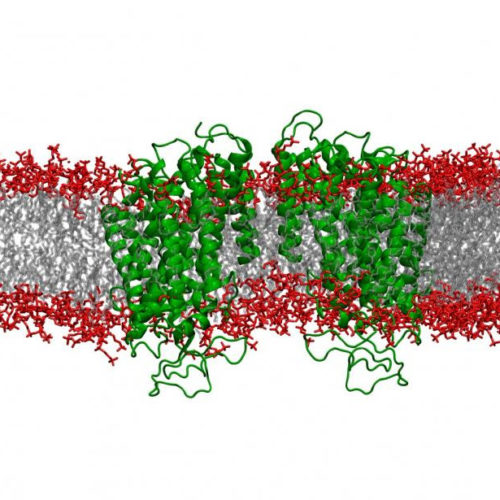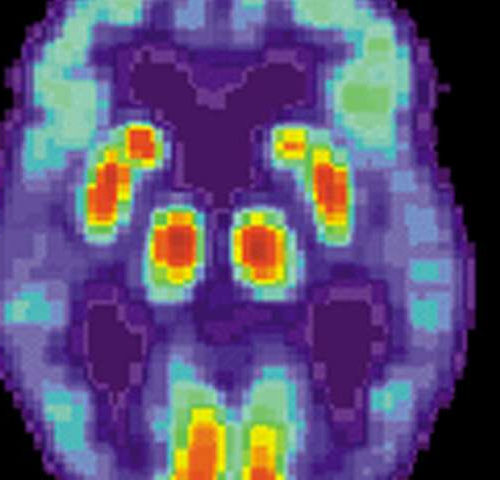A University of Michigan-led study is shedding new light on the way pancreatic cancer cells turn nearby connective tissue cells into co-conspirators in their deadly growth. The findings, which appear in Nature Metabolism, also suggest a new potential strategy against pancreatic cancer by identifying critical components of metabolic cross-talk between cells that might be attacked...
Tag: <span>Drugs</span>
New vitamin K-based drug shows promise against medication-resistant epilepsy
Researchers at the Medical University of South Carolina have formulated a vitamin K-based compound that, due to its unique structure and mechanism, eliminates medication-resistant epileptic seizures in mice tested to date. Credit: Sarah Pack, Medical University of South Carolina In the cover article of the June 11 issue of the Journal of Medicinal Chemistry, a...
A diabetes drug can combat some of the more severe COVID-19 symptoms in women
A diabetes drug called Metformin was found to reduce the fatality rate of women with the coronavirus by as much as 24%. The drug did not appear to have an impact on men with the coronavirus. The coronavirus pandemic may persist for as long as two years without an effective vaccine. Dr. Anthony Fauci recently...
Discovery of a novel drug candidate to develop effective treatments for brain disorders
The study published in Chem is fundamental to develop pharmacological drugs for the treatment of core symptoms in Down syndrome, autism and other brain disorders. Researchers aim to create a start-up company with the support of interested investors ISTITUTO ITALIANO DI TECNOLOGIA – IIT THE PROTEIN NKCC1 IS A TRANSPORTER OF IONS IN THE BRAIN;...
DRUG SHOWS PROMISE FOR FIGHTING RARE ALS
An experimental drug for a rare, inherited form of amyotrophic lateral sclerosis has shown promise in a phase 1/phase 2 clinical trial, researchers report. The trial indicated that the experimental drug, known as tofersen, shows evidence of safety that warrants further investigation and lowers levels of a disease-causing protein in people with a type of...
Scientists discover protective Alzheimer’s gene and develop rapid drug-testing platform
by Queen Mary, University of London A gene has been discovered that can naturally suppress the signs of Alzheimer’s Disease in human brain cells, in research led by Queen Mary University of London. The scientists have also developed a new rapid drug-screening system for treatments that could potentially delay or prevent the disease. The main...
Mapping the immune landscape of hematological cancers may help to enhance therapies
by University of Helsinki Activating the immune system is a promising form of cancer treatment. Researchers at the University of Helsinki and Helsinki University Hospital as well as the University of Eastern Finland mapped out the immune landscape of hematological malignancies in a dataset covering more than 10,000 patients to identify drug targets and patient...
X-ray scattering shines light on protein folding
Multiple forms of a non-functional, unfolded protein follow different pathways and timelines to reach its folded, functional state, a study reveals THE KOREA ADVANCED INSTITUTE OF SCIENCE AND TECHNOLOGY (KAIST) THE SCIENTISTS FOUND THAT NON-FUNCTIONAL UNFOLDED FORMS OF THE PROTEIN CYTOCHROME C FOLLOW DIFFERENT PATHWAYS AND TIMELINES TO REACH A STABLE FUNCTIONAL FOLDED STATE. view...
Species could hold a cure for melanoma, the most dangerous type of skin cancer
Could the cure for melanoma — the most dangerous type of skin cancer — be a compound derived from a marine invertebrate that lives at the bottom of the ocean? National Science Foundation-funded scientists led by Alison Murray of the Desert Research Institute in Reno, Nevada, think so. They’re looking to the microbiome of an...
New trial results question standard treatment plan for rheumatoid arthritis
In a clinical trial of patients with rheumatoid arthritis, treatment with a drug called upadacitinib provided greater benefits than methotrexate, the most commonly used initial therapy for rheumatoid arthritis. Upadacitinib inhibits certain proteins called Janus kinase enzymes that are involved in inflammation. It’s approved for treating patients with rheumatoid arthritis, but only after they’ve tried...






